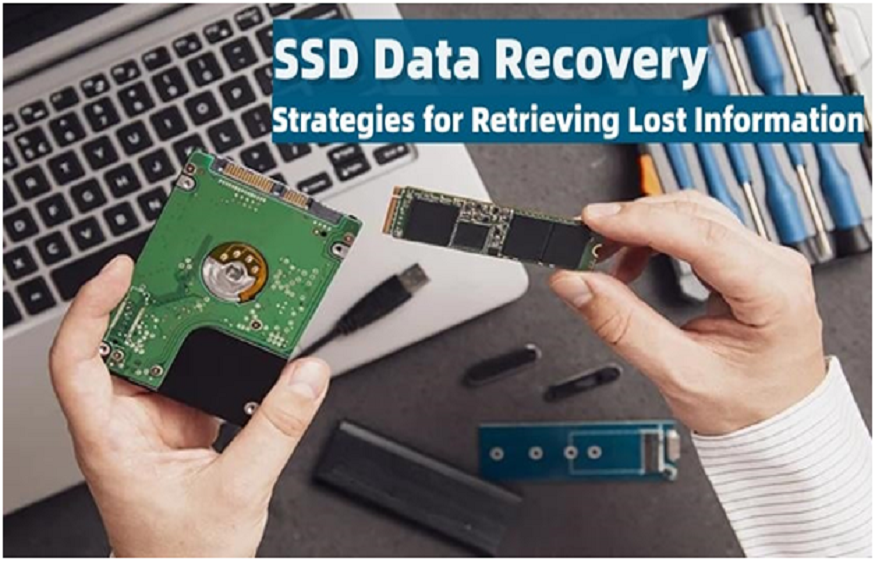In today’s digital-first world, Solid State Drives (SSDs) have become the go-to storage solution for individuals and businesses alike. They are faster, more durable, and energy-efficient compared to traditional hard drives. However, like all electronic devices, SSDs are not immune to failure. When an SSD fails, the loss of critical files, work documents, photos, or even entire business databases can feel devastating. This is where understanding SSD Data Recovery becomes essential.
Whether you are an individual facing the sudden loss of cherished memories or an enterprise struggling with inaccessible project files, professional data recovery services can make the difference between permanent loss and complete retrieval.
Why SSDs Fail Despite Their Reliability
SSDs may not have moving parts like traditional HDDs, but they are still prone to damage. Some of the common causes of SSD failure include:
- Firmware corruption: A faulty update or corruption in the drive’s firmware can render data inaccessible.
- Power surges: Sudden spikes in electricity can damage the controller, leading to data loss.
- NAND flash wear and tear: Every SSD has a limited number of read/write cycles. Over time, the cells degrade, eventually leading to data inaccessibility.
- Physical damage: Accidental drops, water exposure, or extreme temperatures can cause severe hardware failures.
- Human error: Accidental formatting, deletion, or mishandling of drives during cloning or partitioning.
Understanding these risks highlights why even the most reliable technology needs a backup plan and, at times, professional recovery assistance.
When Do You Need SSD Data Recovery Services?
There are several warning signs that suggest your SSD is failing and may require expert help:
- The SSD is not being detected by your computer.
- Files and folders suddenly go missing or become corrupted.
- Your system frequently crashes or fails to boot.
- Performance becomes unusually slow despite SSDs being known for speed.
- You hear unusual noises from your system, though SSDs themselves are silent, indicating an overall hardware issue.
When any of these issues occur, attempting DIY solutions can make matters worse. Professional SSD Data Recovery services are equipped with advanced tools and cleanroom facilities to ensure the highest chances of restoring your data.
Finding the Right Recovery Partner
If you’ve ever searched online for “ssd data recovery center near me” or “ssd data recovery service near me,” you’ll know that there are many providers claiming expertise. However, choosing the right one is crucial. Factors to consider include:
- Experience and expertise: Look for a provider with a strong track record in handling SSD recovery cases.
- Infrastructure: Only professional labs with certified cleanrooms can handle physical SSD failures safely.
- Data privacy policies: Since sensitive data is often at stake, ensure the company adheres to strict confidentiality standards.
- Customer support: Transparent communication and timely updates help reduce stress during the recovery process.
SSD Data Recovery in Metro Cities
With the increasing demand for specialized services, metro cities have become hubs for professional recovery centers. For instance, if you search for SSD data recovery in Bangalore, you’ll come across several local providers. While location convenience is a factor, always prioritize reliability, security, and success rates over proximity.
Why Professional Help Matters
Unlike HDD recovery, SSD recovery is more complex because of features like wear-leveling algorithms, TRIM commands, and encrypted controllers. Specialized knowledge and advanced technology are required to reconstruct lost data. Attempting free or generic recovery software often reduces the chances of success, especially in severe cases like firmware corruption or physical damage.
Preventing Data Loss in the Future
While recovery services are a lifesaver, prevention is always better than cure. Here are a few steps you can take to minimize the risk of data loss:
- Regularly back up your SSD data to an external drive or cloud service.
- Avoid frequent power interruptions by using a UPS.
- Keep your SSD firmware up to date with official updates.
- Handle your device carefully to prevent physical damage.
- Run regular health checks using SSD monitoring tools.
How Stellar Data Recovery Can Help
When faced with the stress of losing valuable data, working with trusted professionals can provide peace of mind. Stellar Data Recovery is a leader in the field of SSD Data Recovery, with decades of expertise, ISO-certified labs, and industry-leading success rates. Their team of specialists can handle everything from logical errors to severe physical damage, ensuring your data is recovered securely and efficiently.
With service centers across India and a dedicated presence in major cities like Bangalore, Stellar makes professional recovery accessible and reliable. If you’re ever in need of expert assistance, their comprehensive services are designed to help you regain what matters most.
Conclusion
SSDs are powerful storage devices, but they are not immune to failure. Understanding when and how to seek SSD Data Recovery services can save you from the permanent loss of crucial data. Instead of taking risks with DIY methods, trusting professionals like Stellar Data Recovery ensures the highest chances of retrieving your files safely.
When data loss strikes, remember—you’re not alone. With the right recovery partner, your data can be brought back to life.

